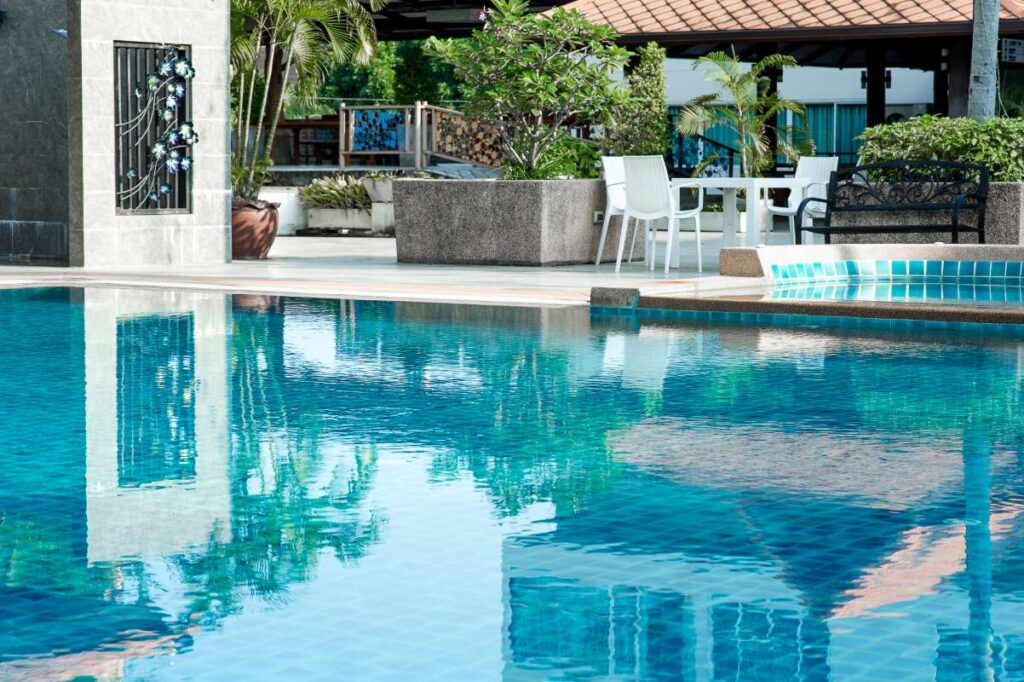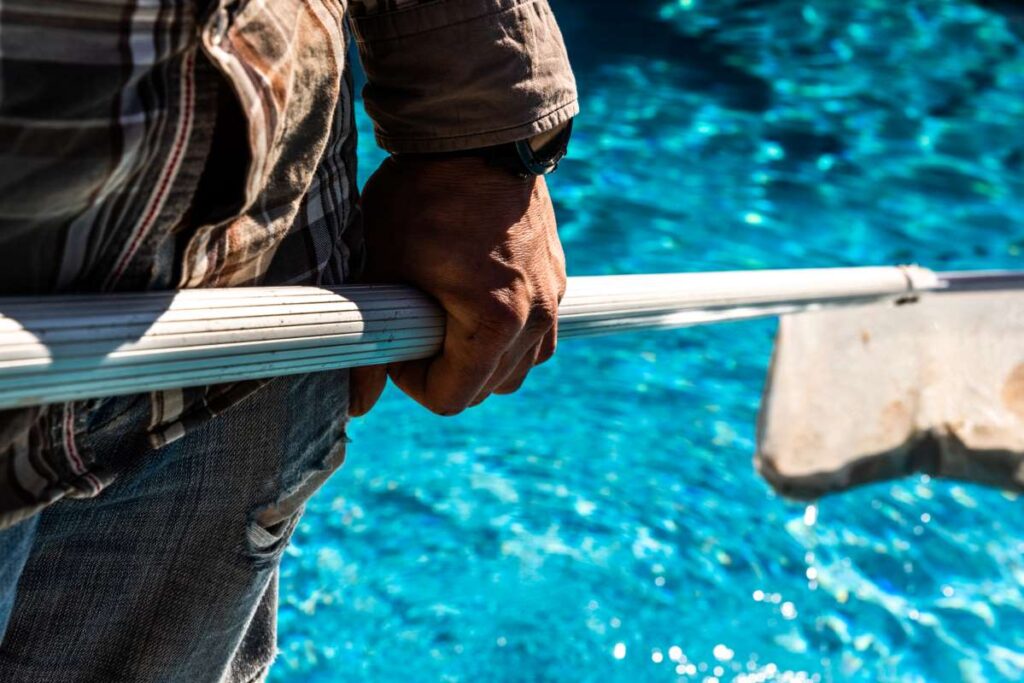Integrating Smart Sensors for Precision Chemical Dosing
Discover how integrating smart sensors can revolutionize precision chemical dosing in the pool maintenance industry, enhancing efficiency and safety.
This blog post delves into the innovative world of smart sensors and their transformative impact on chemical dosing in pool maintenance. As the industry evolves, the need for precise and reliable chemical management systems becomes critical, particularly in ensuring pool safety and enhancing customer satisfaction. This article will explore the technology behind smart sensors, their advantages, implementation strategies, and future trends in the chemical dosing landscape.
Introduction to Smart Sensors in Chemical Dosing
In the realm of pool maintenance, the integration of technology has paved the way for significant advancements, particularly in the area of chemical dosing. Smart sensors are at the forefront of this innovation, enabling service providers to deliver more accurate and efficient chemical treatments. These sensors monitor various parameters such as pH levels, chlorine concentration, and water temperature, thereby allowing for real-time adjustments and automated dosing.The relevance of this technology cannot be overstated. In an industry where water quality is paramount, ensuring that chemical levels are maintained within optimal ranges is crucial. Poorly managed chemical dosing can lead to unsafe swimming conditions, customer dissatisfaction, and increased operational costs. By embracing smart sensor technology, pool service providers can enhance their services while also minimizing the risks associated with chemical management.The article will cover the following critical areas:- How smart sensors work in chemical dosing- The benefits of integrating smart sensors into existing systems- Implementation strategies for pool service providers- Future trends in smart sensor technology and chemical dosing
How Smart Sensors Work in Chemical Dosing
Smart sensors function by collecting data related to water chemistry and environmental conditions. Here’s a breakdown of their operation:- Data Collection: Smart sensors continuously monitor key indicators such as pH levels, chlorine saturation, and alkalinity. This constant data collection allows for real-time insights into water quality.- Data Transmission: The information gathered by the sensors is transmitted to a central system, which can be accessed via mobile devices or computers. This connectivity allows pool operators to monitor conditions remotely.- Automated Dosing: Based on the data received, the system can automatically adjust the chemical dosing, ensuring that the pool maintains optimal water quality without manual intervention.For example, if a sensor detects a drop in pH levels, it can trigger the automatic release of an acid to correct the imbalance. This level of automation not only improves efficiency but also reduces the risk of human error, which is a significant factor in pool maintenance.
The Benefits of Integrating Smart Sensors into Existing Systems
Integrating smart sensors into chemical dosing systems offers numerous benefits, making them an attractive option for pool service providers. Some of the key advantages include:- Enhanced Precision: Smart sensors provide precise readings, allowing for accurate chemical dosing that keeps water conditions optimal. This precision helps in maintaining safe swimming environments and reduces the likelihood of chemical-related issues.- Cost Efficiency: By optimizing chemical usage, pool operators can significantly reduce the amount spent on chemicals, leading to overall cost savings. The initial investment in smart sensor technology is often offset by these savings over time.- Improved Safety: Automatic monitoring and dosing minimize the risk of human error, which can lead to hazardous situations for swimmers. By ensuring accurate chemical levels, pool operators can create a safer environment for their clients.- Time Savings: Automating the chemical dosing process frees up valuable time for pool service providers, allowing them to focus on other aspects of their business, such as customer service and maintenance.- Data-Driven Decisions: The data collected by smart sensors can provide insights into usage patterns and trends, enabling operators to make informed decisions regarding maintenance schedules and chemical purchases.These benefits illustrate why the integration of smart sensors is becoming a necessity rather than a luxury in the pool maintenance industry.
Implementation Strategies for Pool Service Providers
Implementing smart sensors for chemical dosing involves several strategic steps. Here’s a guide for pool service providers looking to incorporate this technology:1. Assess Current Systems: Evaluate existing chemical dosing systems to determine compatibility with smart sensor technology. This assessment will help identify any necessary upgrades or modifications. 2. Choose the Right Sensors: Select smart sensors that are suitable for the specific needs of the pool environment. Factors to consider include the types of chemicals used, the size of the pool, and the specific parameters that need monitoring. 3. Integrate with Existing Systems: Work with technology providers to seamlessly integrate the smart sensors into current dosing systems. This may involve software updates or hardware installations. 4. Training and Education: Ensure that all staff are adequately trained on the new technology. Understanding how to interpret data and manage the automated systems is crucial for successful implementation.5. Monitor and Adjust: After implementation, continuously monitor the system’s performance. Use the data collected to make any necessary adjustments to improve efficiency and accuracy.By following these steps, pool service providers can effectively integrate smart sensors into their operations, enhancing their service delivery and operational efficiency.
Future Trends in Smart Sensor Technology and Chemical Dosing
The landscape of smart sensor technology is rapidly evolving, with several trends poised to shape the future of chemical dosing in the pool maintenance industry:- Increased Connectivity: As the Internet of Things (IoT) continues to grow, more devices will become interconnected. This will enable comprehensive data analysis and management across multiple pools, allowing service providers to optimize operations on a larger scale. – Artificial Intelligence (AI) Integration: The incorporation of AI will allow for more advanced analytics, enabling predictive maintenance and more accurate dosing recommendations based on historical data and trends.- Sustainability Focus: With an increasing emphasis on sustainability, future smart sensors may be designed to optimize chemical use further, reducing environmental impact and promoting greener practices in pool maintenance.- User-Friendly Interfaces: As technology becomes more mainstream, user interfaces will likely become more intuitive, making it easier for technicians to manage and understand their systems.These trends indicate a promising future for smart sensors in the pool maintenance industry, highlighting their potential to enhance efficiency and safety in chemical dosing.
Conclusion
Integrating smart sensors for precision chemical dosing represents a significant advancement in the pool maintenance industry. The benefits of enhanced precision, cost efficiency, improved safety, and time savings make this technology essential for modern pool service providers. As the industry continues to evolve, embracing such innovations will not only improve service delivery but also ensure a safer and more enjoyable experience for pool users. For those in the pool maintenance sector, the time to explore this transformative technology is now. Dive into the future of pool maintenance by considering the integration of smart sensors into your operations and elevate your service standards.For more information about acquiring existing pool accounts, check out our
Pool Routes For Sale options in your region or visit our
Pool Routes How It Works page to learn more about the benefits of joining the Superior Pool Routes family. If you have any questions, feel free to check our
Pool Routes FAQ or
Contact Us for personalized assistance.



